Khulan M.
/ October 24, 2024
Tapan Mishra: Effective Leadership Is About Being A Visionary
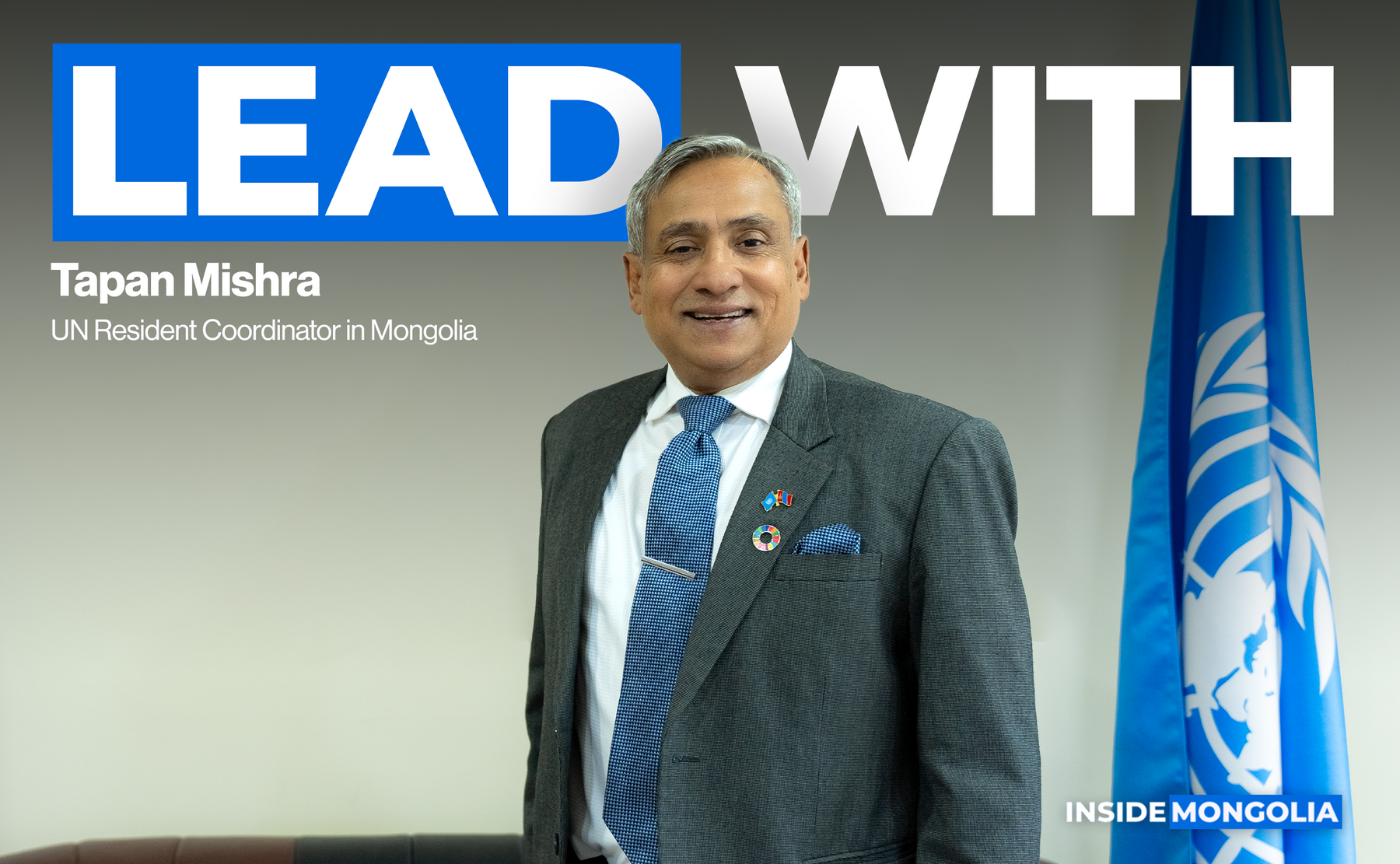
Today, October 24th is UN Day! We’re thrilled to welcome Tapan Mishra, the UN Resident Coordinator, to this edition of Lead W/. Join us as we explore his insights, work philosophy, and the impactful initiatives he champions in global cooperation and sustainable development.
Mr.Tapan Mishra was appointed as a United Nations Resident Coordinator for Mongolia 5 years ago. As UN RC, the highest-ranking representative of the United Nations Development System in Mongolia, he has been designated by the UN Secretary-General to lead the UN Country Team in coordinating operational activities for development in the country. Before this post in Mongolia, Mr. Mishra served as UN RC in North Korea from 2015 to 2019.
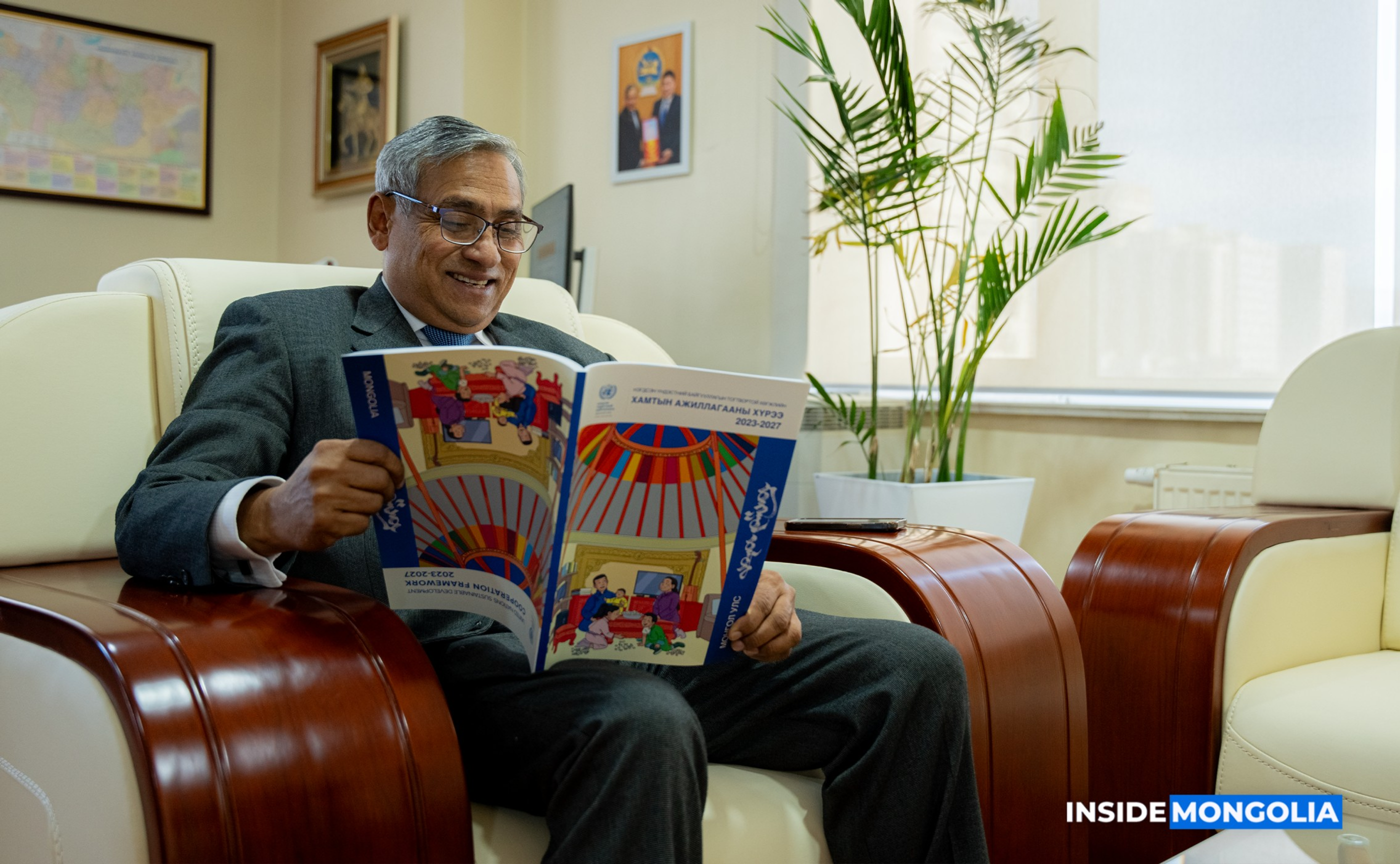

- XLRI Jamshedpur, India
- SVKM's Narsee Monjee Institute of Management Studies, Mumbai
- Columbia University, School for International and Public Affairs (SIPA), USA

- Bharat Petroleum Corp - Internal Coach
- Grow Talent Corporation - Vice President, Consulting
- Columbia University - Adjunct Professor
- UNDP - Senior Advisor to Director & Deputy Director
- UN Resident Coordinator & UNDP Resident Representative
- UN Resident Coordinator, North Korea
- UN Resident Coordinator, Mongolia

Could you describe your leadership style and philosophy, with specific examples?
My leadership journey has always been rooted in the roles of a trainer and educator. From my early days at Bharat Petroleum, where I led transformative change, my vision was to become an inspirational leader, someone who can genuinely think beyond the present. So my leadership style is to be a visionary leader.
Managers manage what existing processes themselves in the best possible way. But leaders are the ones who have a picture of the future that they want to create.
And also somebody who builds not only his or her vision but who builds a shared vision. So you bring everybody together towards what is the vision that you want to create for your organization, for your society, your community, people.
Teaching leadership at esteemed institutions, both in India and at Columbia University's School of International and Public Affairs, has fueled my passion for mentoring the next generation. I am deeply committed to fostering leadership development, which I have studied and practiced extensively.
In my current role as a UN Resident Coordinator, I have the privilege of leading a diverse team across multiple UN agencies, directly reporting to the UN Secretary-General. My leadership style centers around being a strategic leader, focusing on the results we aim to achieve and crafting a clear strategy to reach those goals. So leadership development has been something that I have been studying, I have been working on. And in the UN, now as a role of the resident coordinator, my job is to lead the whole UN. So to bring all the UN agencies together and have.
How are we going to achieve the vision that you created together? So creating a shared vision and building a strategy around that. The second is to also make sure that you have good systems and processes in place to make that happen. Third, you build wonderful relationships with people, your team, your partners, your colleagues, your all the other stakeholders together.
Together all this, you create relationships resources, and strategies to create the results you want to achieve. So overall, it's an inspirational leader with strategic foresight, with an enabling understanding of good managerial skills and of managing resources and also building wonderful relationships of trust, of confidence, so that you can have your team supporting you in achieving the results you want to create as a leader.

Could you share a memorable leadership experience that shaped your approach?
One of my most memorable leadership experiences came early in my career at Bharat Petroleum. My first boss had a harsh, almost brutal leadership style—demanding and often humiliating. Despite this, I realized his respect came from deep knowledge and substance, particularly in labor law and Supreme Court judgments. Motivated by this, I mastered these areas and quickly gained his favor. The key lesson was that leadership is not about abrasiveness but about depth of knowledge and strategy.
Later, I worked under a compassionate leader whose supportive approach fostered loyalty and collaboration. This reinforced my belief that while being strategic and substantive is crucial, being kind and approachable is just as important for driving productivity.
I’ve also had the fortune of learning from visionary leaders like the chairman of Bharat Petroleum, who implemented transformative changes, and global figures like Narayana Murthy and Nandan Nilekani at Infosys. From them, I learned how to lead by example and think beyond the immediate future.
In my role as the UN Resident Coordinator, I’ve had to rely on leadership by influence. Without direct authority or control over resources, I had to bring together multiple stakeholders, agencies, and governments.
I learned the art of leadership by influence, getting people on board not by power or money, but through vision, ideas, and relationships.
In a complex setting like the UN, where collaboration is key, I discovered that influencing others through trust, credibility, and shared goals is far more powerful than formal authority.
Through all these experiences, I consider myself a lifelong student of leadership. I’ve observed various leadership styles throughout my career, taking lessons from each one to continually refine my own approach. Leadership is a constant learning journey, and I strive to blend the best of what I’ve seen into my own practice.
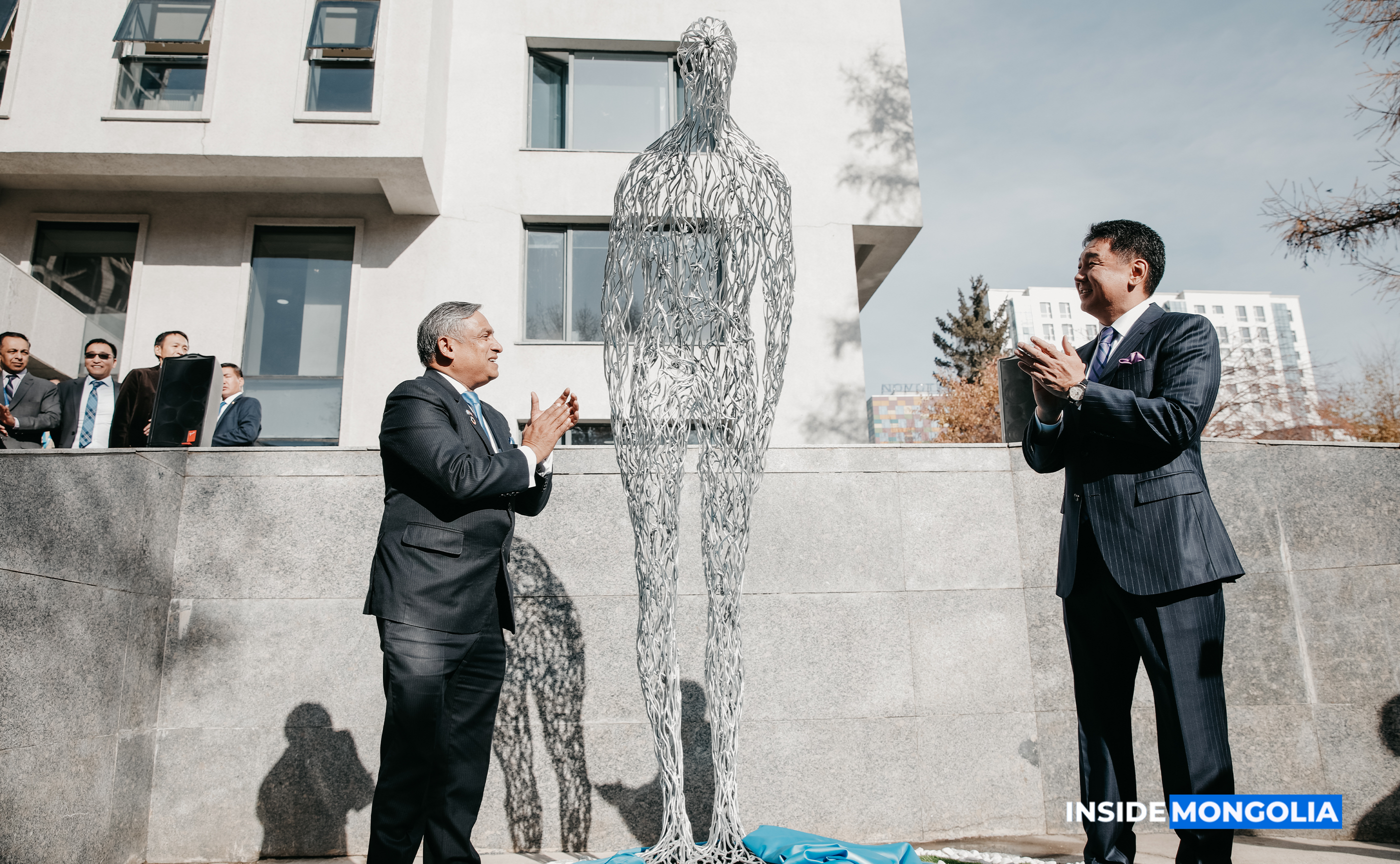

What are the 3 key highlights from your career journey?
So 3 things you need to know about me are,
1️⃣ I grew up as a shy, nervous boy from a small town, hesitant to speak in public. I used to stammer and avoid any form of public speaking. But I was inspired by my father, who was an eloquent speaker. I practiced tirelessly, reading newspapers in front of a mirror and convincing myself that I could improve. Slowly, I turned that nervous energy into confidence. Today, I’ve spoken in over 90 countries, leading workshops and addressing global audiences. I still have moments where I stammer, but I’ve learned to channel that into positive energy.
2️⃣ Another key leadership lesson came from failure. Early in my career, I was recognized as a high-potential leader, but my focus on personal success made others feel excluded. I learned the hard way that true leadership isn’t about being a lone star. It’s about bringing your team with you and fostering collaboration and inclusion.
3️⃣ Lastly, leadership isn’t just about words. It's about action and tangible results. People trust you not because of what you say, but because of the results you deliver. These experiences have shaped me into a better leader and communicator, and I hope to inspire others, especially in Mongolia, where many are shy speakers, to embrace the power of communication. If I could do it, they can too.
What was your most impactful investment in personal growth, and how did it shape your path?
I want to talk about 2 types of investments that have significantly shaped my life. One is a financial investment, and the other is a career investment. Both have been critical in my personal growth, each playing a distinct role in how I’ve been able to balance my family life and advance my career.
- Financial Investment: The biggest financial investment I’ve made was buying an apartment in Manhattan, New York. It was a significant financial stretch, but it was essential for my family’s well-being. When I transitioned from New York to take up my role as UN Resident Coordinator in North Korea for over four years, I wanted my wife and daughter to be safe and secure, especially considering my daughter’s health challenges. The mortgage was a big commitment, but it ensured their comfort while I worked abroad. As a global nomad, having spent nearly 10 years away from home, I’ve always felt at ease knowing they are in a safe space.
- Career Investment: My father made the biggest career investment when he supported my decision to attend XLRI, India’s top business school for human resource management. His belief in me led to my enrollment in XLRI, where I gained the foundational skills in management and leadership that have guided my professional path. That education was a turning point and remains one of the best investments in my career.
As you mentioned, you're a global nomad. How do you mentally and physically prepare yourself before moving to a new country?
One of the most significant transitions I experienced was moving from New York City, where I directed the UNDP Learning Center, to North Korea, Pyongyang, as the UN Resident Coordinator and representative for various UN agencies. The geopolitical challenges in North Korea required me to prepare extensively. I was personally interviewed by UN Secretary-General Ban Ki-moon to assess my suitability for the role, marking the first time the Secretary-General conducted such an interview in UN history.
Given North Korea’s unique context, much of the work focused on humanitarian efforts rather than development. I took the opportunity to study the country, spoke to people familiar with the situation, and prepared myself mentally for the complexities of working in such an environment. My approach was to be open and genuine with the North Korean government, building trust by clearly communicating my objectives and leadership style. This preparation paid off, as I worked there for over 4 years, and they even asked me to extend my term, which was a testament to the success of my efforts.
During my time in North Korea, I visited Mongolia to explore banking options for North Korea amidst international sanctions. I assessed the country's banking sector and realized it was too fragile at the time due to issues with the Financial Action Task Force (FATF). Nevertheless, my visit to Ulaanbaatar and Terelj opened my eyes to the potential for development in Mongolia. I experienced the nomadic lifestyle firsthand, and it shaped my decision to eventually work in Mongolia.
In each new assignment, I prepare by thoroughly assessing the country's challenges and opportunities. I focus on what I can contribute and adapt accordingly, always aiming to do my best to support the people and work with governments and other stakeholders.
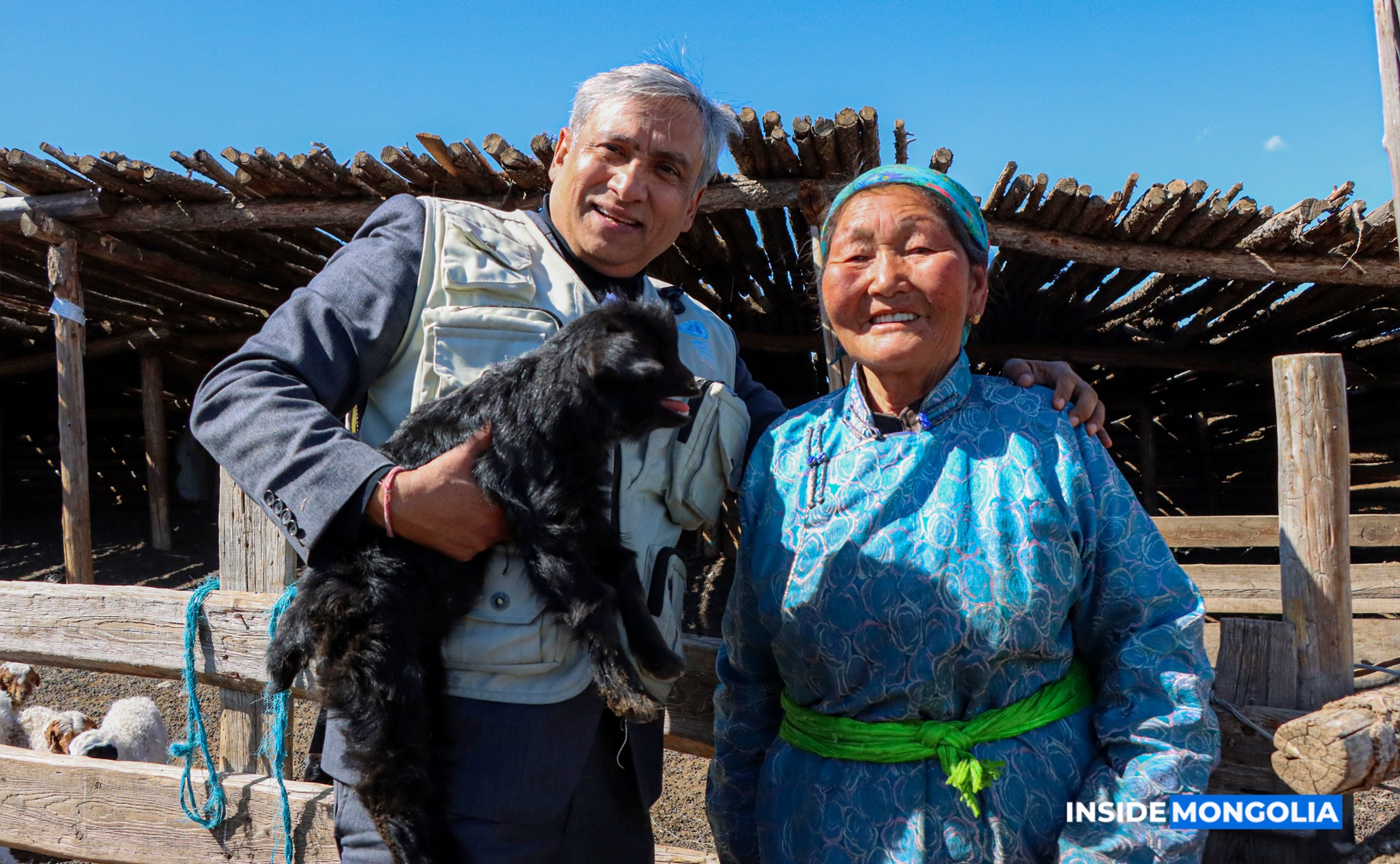

What is the most essential quality for a leader?
For me, 5 key qualities define an effective leader. First is the ability to think beyond the ordinary, to have a vision, and to create a shared vision that includes and inspires others about where we want to go. Second is a sense of realism, understanding the current reality, recognizing the issues and concerns at hand, and identifying the challenges we face.
The third quality involves creating a strategy. Developing a roadmap that outlines how we can transition from our current state to our desired future. This includes determining the necessary actions and resources. Fourth, we must establish the right systems, processes, and structures to facilitate our goals.
Lastly, and perhaps most importantly, is the creation of a strong organizational culture. As management guru Peter Drucker famously said, "Culture eats strategy for breakfast." A positive culture within a team or organization can overcome challenges and foster innovative strategies to achieve outstanding results. By establishing a structure rooted in strong values and cultivating camaraderie where team members trust and support each other, we can build an inspiring workforce.
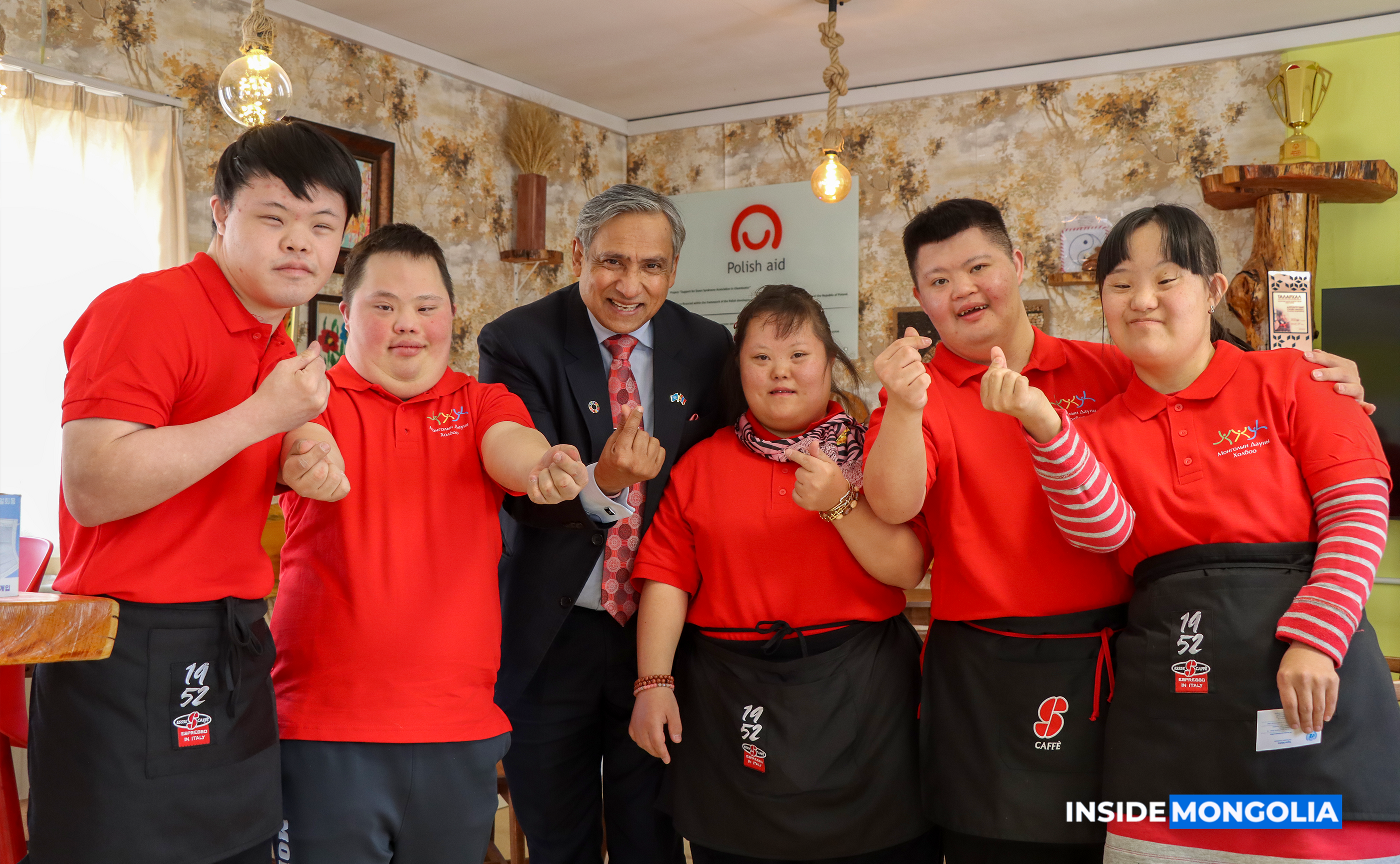
What is your perspective on the concept of work-life balance?
Work-life balance is crucial. Just like a flower needs all its petals to bloom, every aspect of our lives, personal, professional, emotional, and spiritual, needs attention to thrive. However, achieving balance is not always straightforward. Some people might use the concept of balance as an excuse to indulge in distractions. How many people in the world have the opportunity I have for my work? I’m not here as a tourist; I’m here to meet Mongolian herders, the people who need support to improve their lives. I feel truly blessed and inspired by this experience. So for me, the work-life balance is about balancing your own mind. I spend a lot of weekends walking to the national park or going to other places for long walks. Sometimes walk 10 to 15 kilometers with some colleagues together. So I try to balance everything together.
Everyone has 24 hours in a day, and how we use that time matters. I ensure I get 6 to eight hours of sleep, stay connected with my family, and take time for physical activities like walking or exercising. I also make it a point to meditate for mental clarity.
However, balance is subjective. Ultimately, true balance is about stability—what gives you peace, calmness, and energy. It requires introspection to identify what truly constitutes balance in your life.
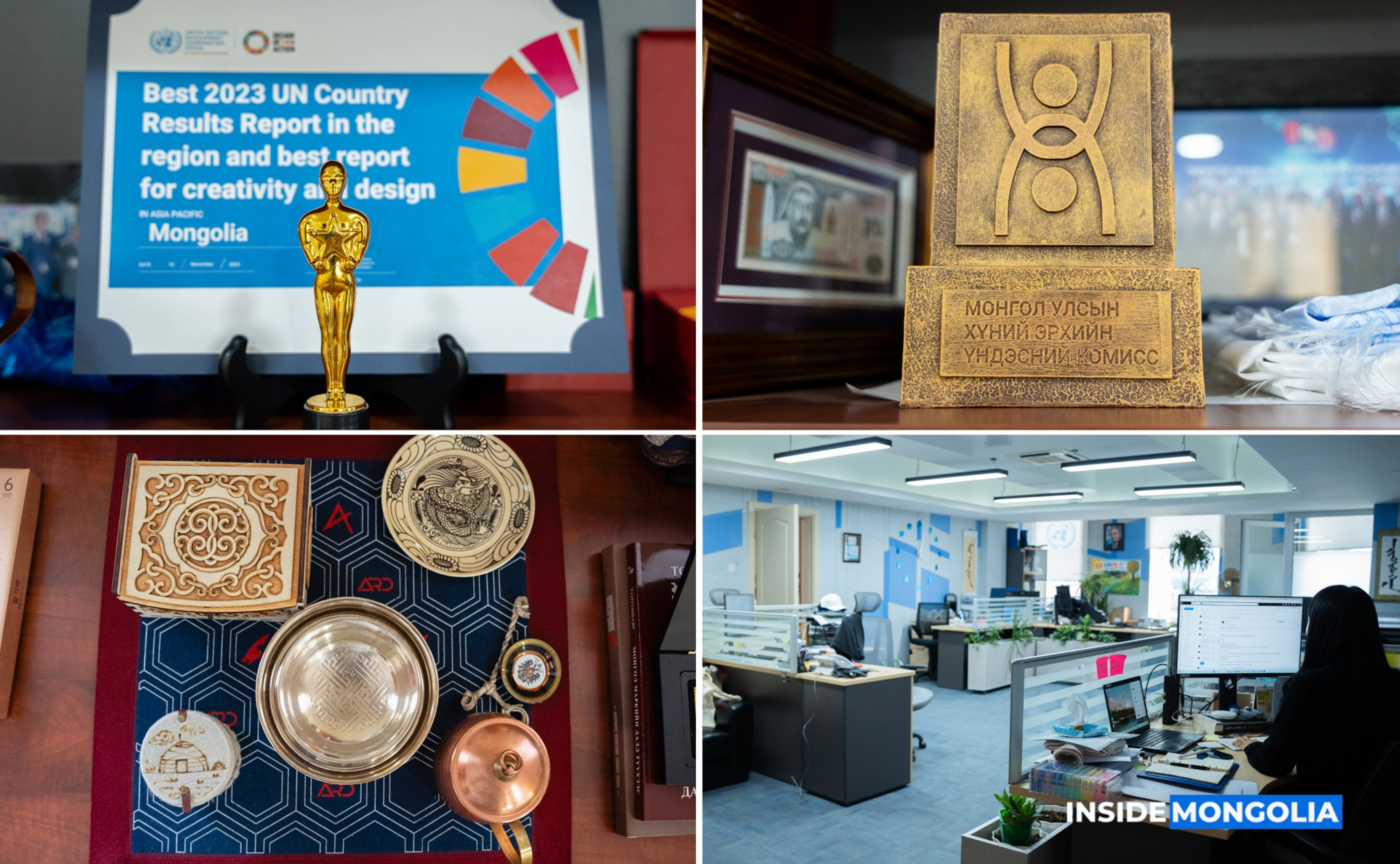

How many team members do you currently manage?
My leadership spans multiple layers within the UN system. At the first level, I manage the UN Resident Coordinator’s Office (RCO), which consists of 11 team members who are my direct reports. Beyond that, I hold a leadership role as the head of the United Nations Country Team in Mongolia, which includes 24 agencies, 12 of them in Mongolia, and 12 of them supporting Mongolia from outside.
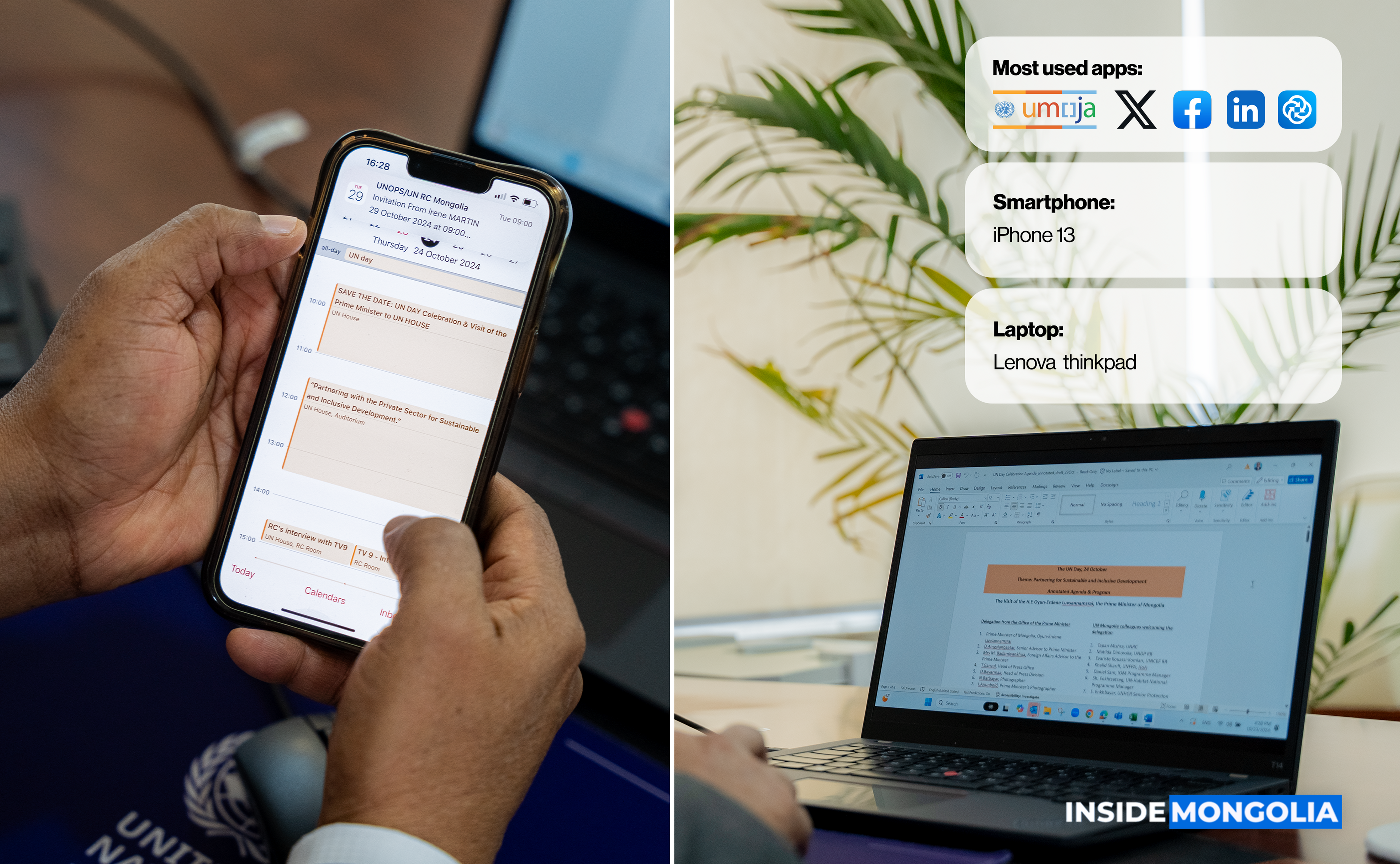
What apps and platforms do you use most frequently?
For work, I primarily rely on UN organizational apps such as Umoja, the business portal for all our transactional operations, and Inspira, which focuses on human resources, performance management, and learning development. These tools help streamline our business and HR processes.
On the social side, I'm quite active on Facebook, which is also a favorite in Mongolia. I frequently share personal and professional updates there. I also use X (formerly Twitter) for short, impactful work-related posts, and LinkedIn for professional networking. Although I have Instagram and Snapchat, I rarely use them.
On the entertainment side, my daughter recently installed Netflix on my iPad, but I hardly get the time to watch anything.

Where do you typically source your daily information?
- BBC, CNN
- Montsame, MNB
What book is always on your desk and serves as your go-to recommendation?
- The Fifth Discipline: The Art & Practice of The Learning Organization by Deckle Edge
- Genghis Khan and the Making of the Modern World by Jack Weatherford
Recommended,
- Adaptive Leadership Method by Ronald Heifetz
- The 7 Habits of Highly Effective People by Covey, Stephen R.
- Emotional Intelligence: Why It Can Matter More Than IQ by Daniel Goleman
📨 A Special Message from Tapan Mishra
October 24th, marks UN Day, a significant occasion for all of us. I think this is a recognition of the value of the UN to Mongolia. Mongolia is a proud member of the United Nations that joined on the 27th of October 1961.
To all Mongolians, remember that the UN is here to support you without any hidden agendas. We are not a business or a lender, we are the world’s largest multilateral organization dedicated to ensuring that no one is left behind as we pursue our goals.
Let’s unite with the UN, the government, and all stakeholders to build a better future for our generations to come. On this UN Day, let’s honor the contributions the UN has made to Mongolia over the past 60 years and recommit ourselves to achieving the Sustainable Development Goals by 2030, aligning with Mongolia’s Vision 2050. Together, we can create a brighter future for all!
Comment